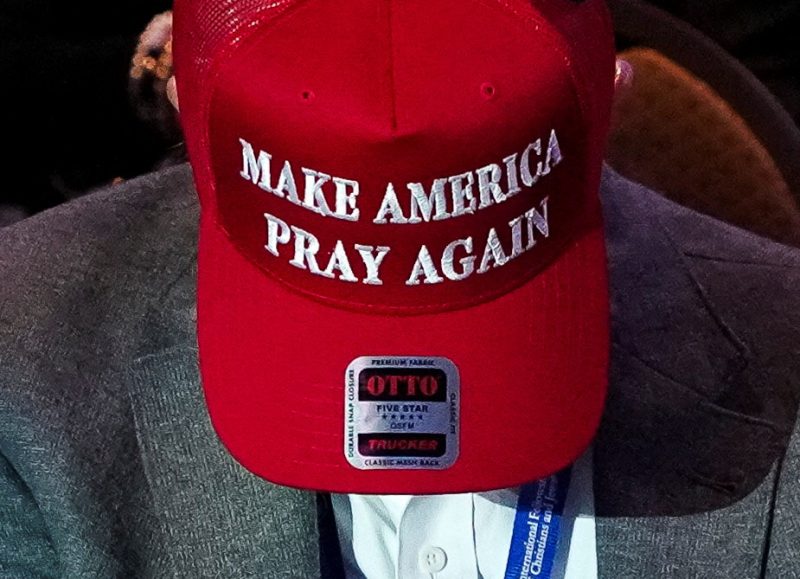Shortly after the 2020 election, the research organization PRRI released a fascinating set of data showing just how closely support for Donald Trump was linked to religion. The higher the percentage of White Christian residents in a county, PRRI determined, the more support that county tended to have for Trump.
This week, PRRI published a more narrowly refined set of data, looking at a subset of Christian thought in the United States: Christian nationalism, the idea that the United States should be an explicitly Christian nation. And once again, the data indicate a strong correlation with support for Trump.
This chart from 2021 shows the connection between the margin of support in a county and the percentage of White Christians in that county. You can see that the cloud of dots, each representing a county, goes up and to the right. The more White Christians (further up), the bigger the margin for Trump (further to the right).
Last year, PRRI asked a wide swath of Americans to evaluate several statements oriented around the idea of instituting Christian nationalism. Some were explicit: “The U.S. government should declare America a Christian nation,” for example. Others were more esoteric: “Being Christian is an important part of being truly American.”
From the responses, PRRI categorized respondents into one of four groups. Two were supportive of Christian nationalism, including the most supportive of the statements (adherents) and those who were generally supportive (sympathizers). The other two groups were hostile to the ideas, from those who mostly disagreed (skeptics) to those who rejected all the ideas (rejecters).
Using this scale, PRRI estimated the percentage of each state’s population that was supportive of Christian nationalism — that is, that were adherents or supporters. Nationally, about 3 in 10 Americans fell into this category, with 1 in 10 as “adherents.” But at the state level, support would at times near 50 percent. In Mississippi, half the population was estimated to be supportive of the precepts of Christian nationalism.
This can be compared to support for Trump in 2020. And when we do so, we see a clear correlation: a cloud of state labels moving up and to the right.
States like Maryland, with relatively few supporters of Christian nationalism, voted for Trump at very low levels. States like Mississippi backed him robustly.
If we compare the 2020 results to just the percentage of Christian nationalism among the White population in each state, the correlation gets tighter.
Support for Christian nationalism among a state’s White population, in other words, was a strong predictor of support for Trump in 2020.
This isn’t surprising, certainly. Support for Christian nationalism is higher among less-educated Americans, older Americans and White evangelical Christians, PRRI found. Those are all groups that are central to Trump’s base of support. This data also doesn’t tell us how causation might work: Are Christian nationalists drawn to Trump or are Trump supporters drawn to Christian nationalism?
Of course, Trump stokes the idea that he is a champion — the champion — of America’s Christian population. He makes explicit appeals to the role of Christianity that Christian nationalists support. His presumed goal is that support for Trumpism and Christian nationalism grow stronger together.
PRRI also found that the religious group second-most likely to embrace the ideas of Christian nationalism were Hispanic protestants, 55 percent of whom fell into the “supporters” group — and 1 in 5 of whom were “adherents.” The correlation here is very loose, but it is worth noting that Hispanic voters have shifted to the right, particularly since 2020.
It’s also worth noting that support for Christian nationalism has been flat over the past year, according to PRRI’s research. It’s not the case that this is a strongly pro-Trump category and a growing one; we can’t point to this and make predictions about Trump’s electoral position, for example.
But we can say that, if returned to office, it’s likely that Trump would once again work to demonstrate the loyalty to religious voters that he’d promised — perhaps including more extreme efforts to turn the United States into a functionally Christian country.

